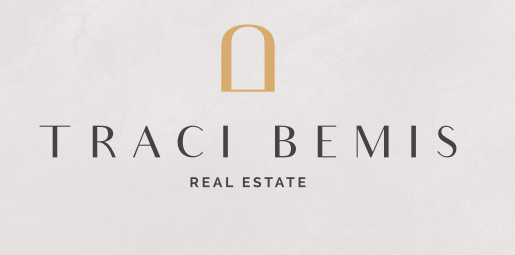
Healthcare SEO Writing and Medical SEO Content
Helping More People Discover Your Site, Become Patients, and Stay Healthy
Through Easy-to-Find, High-Ranking Webpages
And Researched and Readable Blog Content
High-Ranking and Readable Medical SEO Content for…
Private Practices
Direct Care Doctors
Dentists
Physical Therapists
Pharmaceutical
Podiatrists
Addiction Medicine
Primary Care Providers
Aestheticians
Dermatologists
Mental and Behavioral Health
Pain Management
Functional Medicine
Medical Spas
Integrative and Alternative Medicine
Occupational Medicine
Pediatrics
PTs, OTs, and SLPs
Urgent Care
Long-Term Care Providers
Senior Care Services
Adaptive Equipment Suppliers
Assistive Technology Professionals
Primary Care Physicians
Cardiologists
Regenerative Wellness
Orthodontists
-
Search engine optimization, or SEO, is all about making your website content more appealing to search engines like Google. When done correctly, it helps your website show up higher in search results, making it easier for people to find you and increasing website traffic. Healthcare SEO is important for attracting patients who are actively searching for medical services online.
-
When we focus on SEO for healthcare, we focus specifically on medical search engine results. This means we use specific methods that fit the healthcare field. This involves finding keywords that potential patients are looking for, such as "dermatologist near me" or "best heart hospital." This visibility leads to more people visiting your website and finding your practice, which means more patients for you.
-
SEO specialists optimize websites to rank higher on search engines like Google. They research keywords, improve website structure, and create or refine content to increase visibility. They also handle technical SEO, such as site speed, mobile-friendliness, and indexing through link-building, analytics tracking, and staying updated on search engine algorithm changes.
-
Bottom line… local SEO will get more patients through your clinic doors by making sure your medical practice shows up when people nearby search for healthcare services. On-page SEO will boost your authority and credibility so that site visitors trust you, as well as educate them on what’s wrong and how you can fix it.
Off-page SEO boosts your visibility on Google Maps and local search results, helping you stand out over competitors. Reviews, accurate info, and location targeting build trust and convenience for potential patients.
-
Absolutely! Big hospitals may have a wealth of resources, but for healthcare providers, location is key. A person doesn’t want to see the “best physical therapist” and get a result in Tampa; they want to see the “best physical therapist NEAR ME”.
Local SEO is a type of SEO that aims to improve your visibility in searches based on location. It prioritizes geographic as much as topical relevance. This means small clinics can appear ahead of larger competitors in local search results
-
Traditional marketing, like print ads or billboards, uses a "push" strategy. This means putting your message in front of many people, hoping they will notice it. SEO uses a different approach, known as a "pull" strategy; you create helpful content that answers questions your target audience is searching for online.
This focused method works better to draw in patients who are truly interested in your services. Furthermore, with paid ads, your visibility stops as soon as you stop paying. But with SEO, once you reach a top position in the organic search results, it’s hard for competitors to push you out.
"I told Riley that I wanted to "dominate the market", and now we are doing just that! After listening carefully to my hopes for the clinic, he quickly developed great looking pages and worked behind the scenes to build a high SEO ranking site. Since then, our call volume has risen dramatically and awareness of our clinic has grown in our area and beyond, landing us several new contracts as we make our mark in the area.
— Peter, Guardian Health
Medical Professionals with Better SEO
=
More Online Visibility + More Appointments + More Revenue

Before You Provide Care … Patients Need to Be Aware
Every medical marketing strategy … social media, Google ads, and email marketing… but none are meant to operate in isolation. The secret most healthcare marketing agencies leave out is this: short-term tactics will leave you exposed and floundering if they are not paired with a long-term strategy. And nothing is more proven or reliable than Search Engine Optimization (SEO).
People with pain and health problems inevitably look for help on Google. And good SEO guarantees your business is one of their top choices.
Long-tail keywords make up the vast majority of all Google searches
Less than 1% of searchers click on the second page of Google results
Around 87% of consumers researched local businesses with Google Search in 2022
Pages with the highest number of total backlinks usually rank best in Google
Some 88% of marketers who already invest in SEO plan to allocate more or maintain the same amount in 2023
Over two-thirds (68.7%) of all clicks go to the top three organic search results
“What makes SEO work?”
You can have all the positive reviews on google maps and post great content for healthcare… and STILL not rank.
Its “all or nothing” when its comes to having a dominant SEO strategy; each part is necessary.
-
Keyword Research: If you want to acquire customers, then you need to know what questions they ask on search engines. Those health questions, medical terms, and industry-specific phrases are known as “keywords”, and neglecting them is an easy way to make sure no one visits your site. The keywords must be inserted naturally and organically. Otherwise your ranking might be penalized for “keyword stuffing”.
Well-Written: if people don’t want to read it, then they won’t stay on the site, get redirected to your webpage, or schedule an appointment.
Connect with Readers: but the content can’t just be readable; it also needs to be relevant. Information that resonates with their problems and goals will compel them to seek you as a solution. You are writing for their benefit, so talk about what benefits them.
Proper Length for Topic: no one wants 6000 words on a splinter; no one wants 200 words on chemo-therapy. You need to write the correct amount for the topic and search intent of your website visitor.
Headers: Most people skim web content. Having the most important ideas highlighted in headers helps them scan your post so they can determine if it is worth a closer read. It also helps search engines better understand the focus of your conten
Bullet Points: Its easy to get lost in long paragraphs. Breaking up the prose with simple lists can make complex ideas more digestible. t.
Title tags: these are different H1’s that show up in google search results. They are shorter and more direct than a headline.
Meta Descriptions: these are small descriptions given specifically to Google to help the algorithm understand your web page or blog post. Its like giving someone a heads up in the car ride over to a party.
URL structure: How you label your blog post or web page will determine what pages on your site get prioritized.
-
Social Signals: Social signals are online interactions—likes, shares, comments, and mentions—that indicate user engagement with content on social media platforms. While not a direct Google ranking factor, they can boost SEO by increasing visibility, traffic, and brand authority.
Backlinks: When people provide a hyperlink on their site to your site, that means they find your content helpful or authoritative. Google takes notice, and the more it sees, the more it boosts the rankings of medical websites.
Site Layout: Graphic design isn’t just pretty; it helps make your content clear. Search engines can tell if your site is strange, boring, or confusing and will lower your rankings accordingly.
Website Speed: One of the biggest reasons sites don’t rank is loading speed. If someone clicks on a link to your site, and it takes more than a few seconds to load, you will never rank high. Its really as simple as that.
Site Mapping: Site mapping is the process of creating a structured layout of a website’s pages to improve navigation and SEO. There are two main types: XML sitemaps, which guide search engines, and HTML sitemaps, which enhance user experience.
Google Profile: A Google Business Profile (formerly Google My Business) is a free tool that lets businesses manage their online presence on Google Search and Maps. It boosts local search visibility, improves credibility through customer reviews, and increases engagement with potential customers.
Steps to SEO Optimize Healthcare Content

“What Makes You Such a Good Freelance Medical Writer?”
-
I’m not a medical marketing agency that will just copy and paste old work for a high profit; no “cookie-cutter” marketing approach has ever had long-term success. Everything… from branding to web pages… is created specifically for you and your unique target audience. Even my projects and rates are curated to your specific budget and needs.
-
Social media presence, industry thought leadership, community reputation… none of these things matter unless they are impacting the bottom line: increasing your panel size. THAT is the end goal of medical copywriting. Every step of your sales funnel will be a marriage of quality copy and design. If my work and strategy don’t meet your stated goals, I’ll work with you for free until you make back your investment.
-
Misleading healthcare ontent and vague messaging are dangerous. It damages your credibility, breaks trust with customers, but it puts people’s well-being at risk. As a professional healthcare copywriter and medical content writer, my content strategy is thoroughly researched so that you can 1) meet your short and long-term goals, 2) keep both your brand and your patients safe, and 3) maintain regulatory compliance. Accurate information is PARAMOUNT.
-
When marketing, you have to attract and engage your target audience. But when it comes to healthcare, privacy and compassion are ultimately more important than clicks. Unknown pain and ailments leave people vulnerable, and you don’t want to exacerbate their anxiety or violate their rights.
I’m a Freelance Writer and Healthcare Marketer…
Writing quality medical SEO content
Locally and nationally ranking your website and blogs
Driving traffic to your site
And bringing new patients to your door
To solve your customer acquisition problem

The Fundamentals of Healthcare SEO Content
Learn About My Philosophy as a Healthcare Content Writer
The Basics of Healthcare Blogging
How to Write Great Healthcare SEO Content for Better Patient Education
Importance of Ethical Writing in Healthcare Content
“How do I know if SEO is right for my medical marketing strategy?”
-
Just like other industries, SEO content for healthcare is not a quick fix. It takes at least 3 months AFTER your pages have been updated for you to see impactful results from SEO marketing. (Case and point, I wrote this page on Feb 11th… and do not expect anyone to read it until May 11th).
-
SEO is not cheap; the copywriters have to write dozens of pages and blogs, and SEO specialists have to constantly tinker and gather backlinks. It is more akin to a craftsman’s touch than a factory production like online ads.
HOWEVER… once your SEO starts working, its like a machine that keeps on running. Google ads, on the other hand, stop working the moment you stop paying…
In other words, in the long run, good SEO is a better investment.
-
SEO is a marathon, not a sprint. Once you start ranking you still need to post AT LEAST monthly content in order to maintain your rankings. Otherwise, you risk losing your hard-fought position.
Additionally, there will be periodic updates to Google’s algorithm that could impact your rankings. Which is why most SEO agencies and freelancers allow free meetings and updates to tweak and tinker so you maintain your position.
While search engine optimization is one of the most powerful customer acquisition tools available to healthcare providers, it places a handful of unique demands on the client:
But once your medical site ranks…
It’s almost IMPOSSIBLE for competitors to overtake you.
You instantly become the first choice for your target audience,
Getting a reliable steady stream of new clients
IN PERPETUITY
Other
Frequently
Asked
Questions
-
While there is a level of automation to anything online, SEO is… for the most part… NOT automated. On-page SEO content creation requires research, creativity, and empathy. And off pate SEO work involves analyzing the site and strategizing the most efficient way to raise the sites authority in the eyes of google.
-
A.I. is already posing some unique challenges to search engine optimization… but not nearly enough to nullify your investment. A.I. is “clever”, but can’t write in a way that connects. And search engines are already adapting to disregard websites that are stuffed with garbage A.I. content.
-
No. Google is the most important search engine for businesses, so unless you always want to start there. After that, you want to prioritize which content platform is best for you.
-
SEO takes time, and it changes for each healthcare practice. Generally, you should see clear changes in organic traffic, search rankings, and how many patients you gain in about 6 to 12 months.
-
Yes. Both are needed for your SEO strategy to be successful. I work with an off-page SEO team, who does diagnosis of your site to determine the best strategy. They dictate to me how many pages and blogs you need to start ranking.
-
Payments are completed over Paypal. In order to protect us both, the first thing I require 50% of the project’s payment up front before I begin. This is a standard freelance practice. Once I deliver the final draft, there will be a second invoice for the other 50%.
Other payment structures can be explored in the discovery and proposal process.
-
My goal is for the initial project to take as little of your time as possible. You should spend no more than 3 hours total filling out questionnaires, meeting over video with me, and responding my any follow up emails of mine. Subsequent requests for follow up projects would take no more than an hour of your time each.
-
Depends on the project, but usually I deliver a Google Doc that you or your team would publish. I include formatting instructions in the Google Doc. But if you would like me to save you more time, I can implement it myself onto your site/email platform. That work is billed at an hourly rate and will be factored into the invoice.
-
Anything project needed within 10 business days will incur a 25% rush fee increase to the over all price.
-
As a rule I make all client requested edits free… I don’t want to leave you unless you are happy and confident in my work.
However, sometimes a client requests an “edit” that is really a completely new project. If that is the case, we will work out a new proposal at a discount.
-
I am partners with several qualitifed and accomplished freelancers. They include FB and google ad, email deliverability, and graphic design specialists. If the best marketing strategy for your business requires their talents, I will factor that into the proposal or arrange a meeting and pass you along.
-
For your site, you will need some type of web software for monitoring traffic, SEO, and visitor interactions (ex: Semrush, Ahrefs). For emails you will need an email automation platform like Mailchimp or Klaviyo, and a plan that tracks subscriber engagement and allows for for both drip and trigger emails. For blog posts you merely need a blog, I have all the software on my end.
-
I will make unlimited edits to any draft until you are satisfied. I also offer a round of free edits within 6 months of the projects completion. If y work did not generate buzz like you hoped and you are still not satisfied, I offer a 100% money back guarantee.
-
1) I am much more affordable. No employee benefits or office space are being factored into my price; you are paying for my work and my work alone
2) Most agencies suffer from internal and external distractions that prevent them from putting the client first. With me, you get hands on, one-on-one fixed attention, resulting in copy that is tailor-fit to your brand and needs.
3) I LOVE tabletop games. I have been immersed in them as my favorite hobby for over 13 years. I have intimate knowledge of the culture , mechanics, and… most importantly… the target audience.
-
If you want to make an immediate impact on your bottom line, you will need to have your branding in place. That means having a clear vision, mission, values, unique sales proposition, target audience avatars, social media platforms.
If those aren't present, it will be the first project before we explore your marketing options.
-
A medical writer focuses on creating highly accurate, research-based documents intended for professional or regulatory audiences, such as doctors, researchers, or government agencies. Their work often includes clinical trial reports, journal articles, white papers, and continuing medical education materials, all written in a formal, technical style that follows strict guidelines and uses precise medical terminology.
A medical content writer, on the other hand, takes medical information and makes it clear, engaging, and accessible for a broader audience, often patients, caregivers, or the general public. Their work includes blog posts, patient education guides, website articles, and explainer content, aiming to inform without overwhelming readers with jargon.
Meanwhile, a healthcare copywriter uses health-related information to persuade or drive action, creating marketing materials such as website copy, brochures, ads, and social media posts for healthcare services, products, or clinics. Their style is benefit-driven and emotionally engaging, balancing persuasive language with compliance to healthcare advertising regulations. In short, medical writers serve the scientific and professional side, medical content writers bridge science and the public, and healthcare copywriters focus on converting readers into patients or customers.
But SEO isn’t about tricking Google… you have to create content for customers. The steps and terms seem complex and confusing, but the basic principle couldn’t be more simple: People look for solutions, not doctors. Its a 180 degree shift in marketing… you don’t ask people to book an appointment; you give them a reason to




















